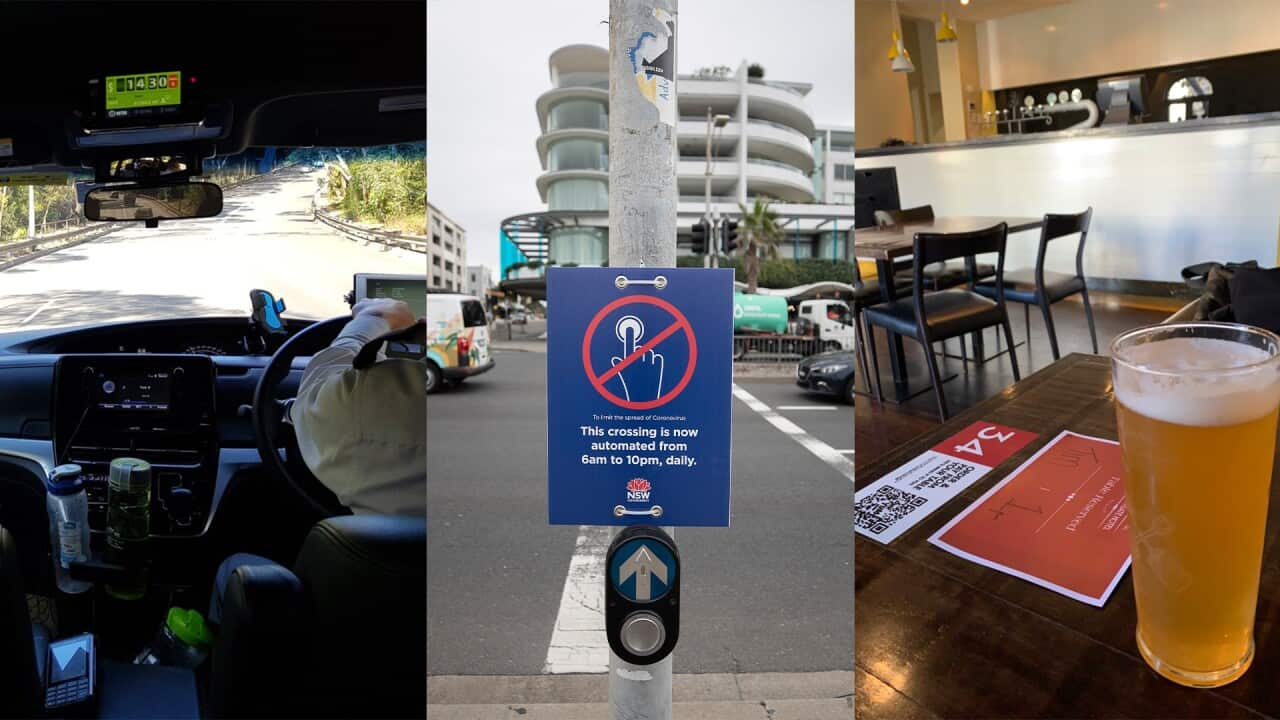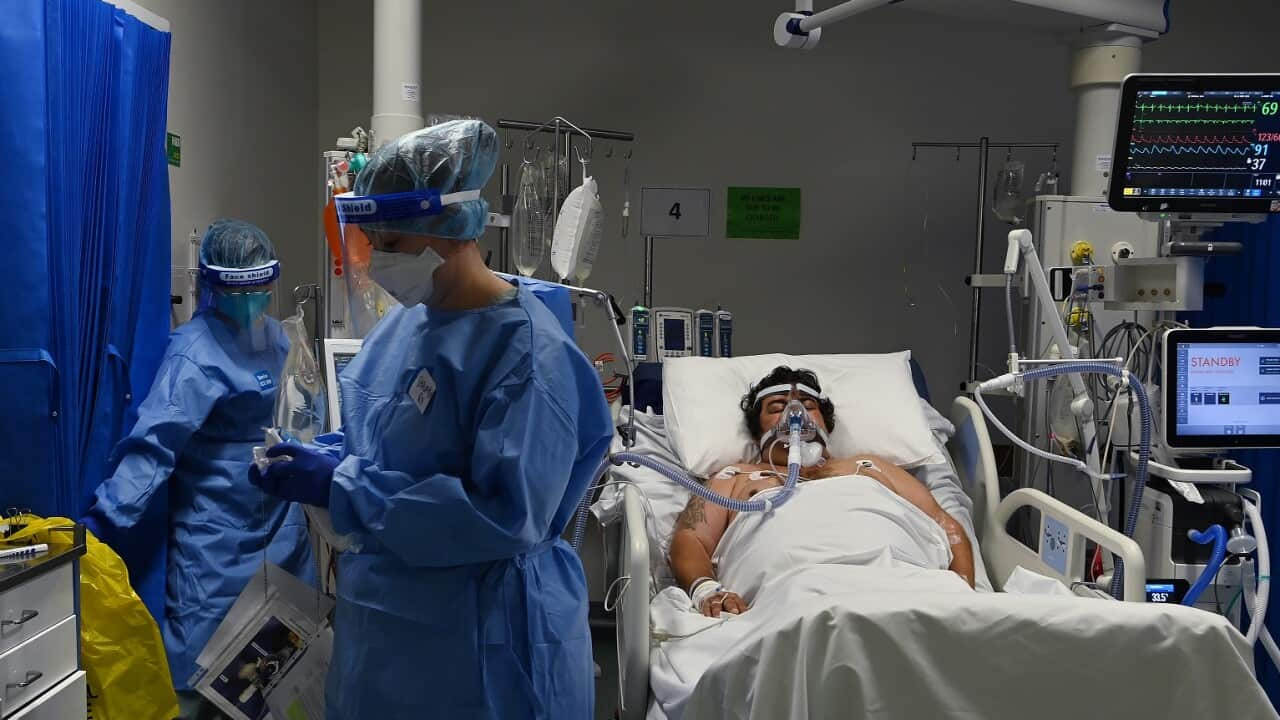Key Points
- XBB.1.5 is a new Omicron strain of COVID-19.
- Experts say it's more contagious than previous strains.
- Australians have been reminded to take a 'common sense approach' with the virus.
Experts are warning Australians about a new Omicron strain of COVID called 'XBB.1.5', which they say is highly contagious.
The strain is prevalent in the United States and has now reached Australia, like several other subvariants over the past three years.
Professor Robert Booy from the University of Sydney told SBS News that XBB.1.5 — a variant of BA 2, another strain of Omicron — is more transmissible than other subvariants.
"I call it 'extra bad boy'," Professor Booy said.
"That just means it's more transmissible and it evades our immunity, however, it's probably not more severe."
While Professor Booy says there are a number of experts "waving their arms and catastrophising", saying it's the "worst variant ever", he believes it's "probably less virulent" than previous ones.
"It is spreading, that's what it's learned to do," he said. "It mutates in order to achieve an evasion of our immune protection."
Professor Booy says while XBB.1.5 is causing "large numbers" of infection, it's not causing more severe symptoms than other strains.
Do the vaccines work against it?
The protection of natural and combined vaccine-induced immunity against XBB.1.5 is unclear. Professor Booy says the subvariant has risen so quickly that vaccine efficacy is not yet known.
"Pseudo viruses. Machine learning. All sorts of things are being done," he said.
"But we don't know the answers yet, because it's so new."
Professor Booy said the answers around vaccine efficacy will come out over the "next few weeks".
In November, the there is early evidence pointing at a "higher reinfection risk" from XBB.1.5, as compared to other circulating Omicron sublineages.
How can you protect yourself?
Professor Booy recommended that Australians adopt a "common sense approach" when dealing with the new strain.
That means getting a booster shot if you haven't already, and the fourth dose if you're a vulnerable person.
"If you develop symptoms, talk to your GP early, get a COVID test, and if you're [COVID] positive, seek antiviral therapy," he said.
In Australia, the oral antiviral treatments for COVID-19 — Paxlovid and Lagevrio — are listed on the (PBS).
This means the medications are subsidised for people with a Medicare card if they are prescribed by a doctor. Under the PBS, the maximum cost for a pharmaceutical benefit item at a pharmacy is $42.50 for general patients.
What about China?
Beijing last month announced it was scrapping strict "zero-COVID" measures in favour of a new policy of living with the virus.
However, a wave of infections has since spread across China after three years of restrictions including closed borders, a strict regime of lockdowns and relentless testing.
The Australian government has imposed testing requirements for people travelling to Australia from China, Hong Kong and Macau from 5 January.
But experts say all of the current subvariants in China are already in Australia.
"We already have community immunity against the subvariants from China," Professor Booy said.
"What we don't know is whether the tens of millions of cases in China right now will lead to a new subvariant. It's perfectly on the cards because that's what viruses do."
Professor Booy said considering the number of people affected, the risk of a new subvariant is "high".
Should you be concerned about long COVID?
With a higher number of cases and reinfections, there is a greater chance of experiencing long COVID.
Symptoms of long COVID include brain fog, extreme fatigue, coughing and shortness of breath.
Professor Booy said if someone experiences severe symptoms after contracting COVID-19, they are more likely to suffer from long COVID.
"If most people are having milder disease, the risk is less for long COVID, but it's still there," he said.
In the last week of December 2022, there were 28,000 new COVID cases in NSW, and 32 deaths.












